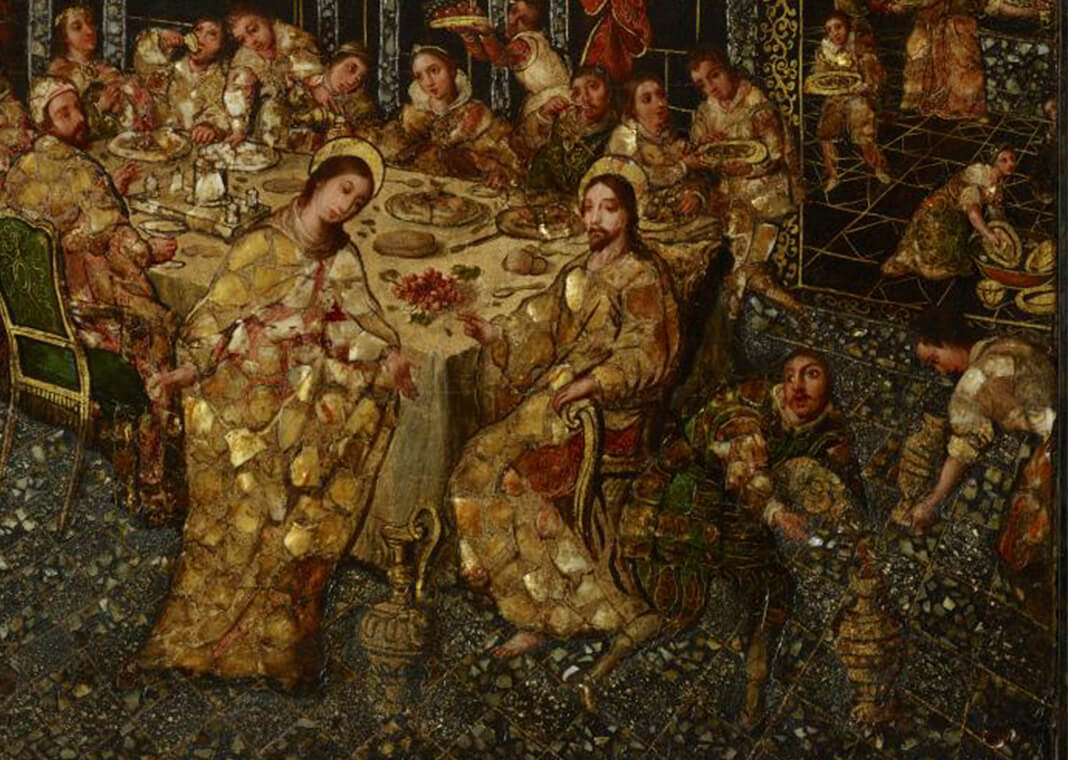
This post is based on Week Six of An Ignatian Prayer Adventure.
John 2:1–11 details the events that occurred at the wedding feast at Cana. I remember reading this story as a young woman, feeling bothered by the way that Jesus answered his mother when she told him that they were out of wine: “Woman, what concern is that to you and to me? My hour has not yet come.” To me, his tone seemed curt, perhaps even scolding.
But over the years, I began to learn more about myself and my part in this relationship that I have with Christ. I discovered in Richard Rohr’s book, Breathing Under Water, that “Most people do not see things as they are; they see things as they are.” I realized that I have to be conscious of the filters of my personal experience and remember to keep my eyes on Jesus. What is he doing? Beyond his words, how is he behaving?
This brought to mind the adage that I heard often during my dating years: “How he treats his mother is a pretty good indication of how he will treat you.” As we watch Jesus’ next actions, what do they say about his relationship with his mother? Did he wonder why Mary was concerned that they were out of wine? Was she worried about the guests? Or was she worried about the family of the bride? Perhaps her concern was always for the good of others.
His mother brought a concern to Jesus. She didn’t tell him what needed to be done. She accepted his response and asked the servants to, “Do whatever he tells you,” and that is the last that we hear of her in that passage. She took the situation to her son and walked away with perfect trust.
Once asked, Jesus took on Mary’s concern. It became his problem because she let go of it and trusted the outcome to him. We of course know that Jesus changed the water in stone jars into fine wine in response. When I see this scene, still filtered through my own life experience, I am able to learn so much. I hear Jesus reminding his mother that we should always seek God’s will first. I am able to see ways to connect with Jesus personally. And I see his love and mercy.
Image: “The Wedding at Cana” by Nicholás Correa, public domain, via Wikimedia Commons

Thank you Jean. Your article hints at bigger truths in friendly ways. God cares or Jesus never let’s you down are nicely brought home through this – “How Does He Treat His Mother?”
Thanks for the comments. There is so much to consider. I do believe that understanding Jesus is beyond my imagination. Learning about him bit by bit through relationship is what feeds me and what sustains.
I often wondered Why Jesus waited so long to actually begin His ministry; as it was to be so short? Maybe it was something to do with caring for His Mother Mary and to do with Jewish tradition? Calling her Woman ? maybe something lost in translation ; one would have thought He would at least say: Mother. However, He did what she wanted; so I guess she knew it was time for it to begin?? Such a caring person,. The Family hosting the Wedding Feast, would have been most humiliated running out of wine. There is always something to puzzle over in all the writings. A.M.D.G.
The mention of women in the Bible, in a general sense, is often brief and often defined by their relationship to men. Jesus’s love for Mary is always evident yet he articulates his mission strongly. The writings of Jesus’s interaction with women shows him to be sensitive to their situation while asking for their faith. Importantly, in the NT, St. Paul tells us “there is neither Jew nor Greek, slave nor free, there is neither male nor female, for you are all one in Christ.”
The line, “Mary’s concern for others.” was insightful. Mary’s care is about each of us. Perhaps the stress, the toil and the trials of the day, or the hour, are draining the wine of Grace from our being. As a good mother Mary voices our needs to her Son. Jesus already knows our needs, but He delights in hearing his mother’s care for us. When we leave our needs to God’s goodness, we are living within faith.